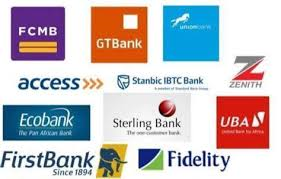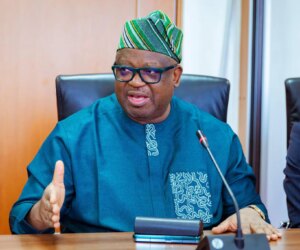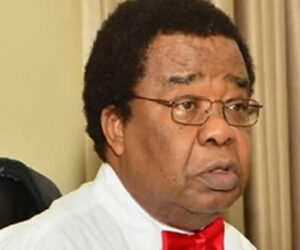1
LAGOS – A fresh wave of foreign interest is gathering around Nigeria’s banking sector as the country’s recapitalisation exercise opens new doors for international investment funds, regional lenders, and private equity firms seeking a foothold in Africa’s largest economy.
For the first time since the landmark 2005 consolidation, when global institutions like Standard Bank of South Africa and Ecobank Transnational reshaped the ownership structure of Nigerian banks, foreign investors are again circling, this time with sharper focus, deeper pockets, and more sophisticated strategies.
The attraction is clear: Nigeria’s massive, underbanked population; the country’s expanding digital finance ecosystem; and the regulatory clarity provided by the Central Bank of Nigeria’s (CBN) new recapitalisation policy, which compels all banks to raise their capital bases by 2026.
The CBN’s 2024 recapitalisation directive, setting N500 billion as the new minimum capital for international banks, N200 billion for national banks, and N50 billion for regional banks, is not just a domestic clean-up. It has become a magnet for international capital seeking long-term exposure to Nigeria’s financial system.
According to market insiders, investment interests have emerged from South Africa, Morocco, the United Kingdom, and the Middle East, with several groups reportedly holding preliminary discussions with Nigerian banks and advisory firms.
“Foreign investors are watching closely,” said Johnson Chukwu, CEO of Cowry Asset Management. “This recapitalisation exercise provides an entry point for new players who want exposure to Africa’s largest economy. However, any foreign participation will likely be strategic and they will go for banks with solid governance, strong management, and growth potential.”
For many observers, this renewed attention signals a shift in global sentiment toward Nigeria. After years of capital flight driven by foreign exchange instability, policy inconsistency, and security concerns, the reforms introduced under President Bola Tinubu’s administration, particularly the CBN’s market-friendly approach under Governor Olayemi Cardoso, appear to be restoring investor confidence.
Foreign interest in Nigerian banks is not solely driven by the recapitalisation mandate; it reflects broader structural changes in the country’s financial and economic landscape.
First, Nigeria’s financial inclusion gap remains vast. Despite rapid progress in mobile banking and digital wallets, nearly 36% of adults remain unbanked, representing an untapped market of over 38 million potential customers.
Second, the country’s fintech revolution, led by companies like Flutterwave, Moniepoint, and OPay, has redefined financial services delivery. Global investors see synergy opportunities between fintech platforms and traditional banks, particularly those seeking digital transformation partnerships.
Third, recent macroeconomic reforms, including the unification of exchange rates, reduction of fuel subsidies, and improved transparency in monetary policy, have begun to stabilise Nigeria’s investment environment, making banking assets more predictable and potentially lucrative.
Managing Director of Financial Derivatives Company, Bismarck Rewane, said, “Investors are seeing that Nigeria is repositioning for growth. The recapitalisation process will produce stronger, more efficient banks. Foreign funds want to be part of that story, especially if it means acquiring significant stakes at attractive valuations.”
Unlike in 2005, when foreign banks such as Standard Bank took majority control of local lenders to establish direct operations, today’s investors are expected to adopt more nuanced entry models.
Analysts predict minority and strategic stakes rather than full-scale takeovers, aligning with global trends toward partnership-driven investments.
Private equity funds, sovereign wealth vehicles, and regional banking groups are at the forefront of this approach. Their interest lies in scalable investments that combine profitability with influence and not necessarily control.
“Traditional foreign banks are more cautious today,” said a Lagos-based investment banker who requested anonymity. “The new entrants will likely be private capital funds, family offices, and institutional investors looking for strong returns in emerging markets. They’re less interested in running the banks and more focused on governance, efficiency, and dividends.”
He added that the recent strong financial performances of Nigerian banks, with tier-one lenders posting record profits in 2025, have underscored the sector’s resilience and profitability potential.
Nigeria’s recapitalisation policy has created a two-speed race. Tier-one institutions like Access Holdings, GTCO, Zenith Bank, UBA, and FBN Holdings already exceed the new thresholds and are largely self-sufficient. But mid-tier and regional players face tougher challenges and are therefore prime targets for foreign capital inflows.
These banks have solid franchises but need additional capital to expand their market share, upgrade technology infrastructure, and meet the regulatory bar. For foreign investors, that combination of strong fundamentals and funding gaps presents an ideal entry point.
“Foreign funds will likely focus on mid-tier banks because that’s where they can achieve growth and valuation upside,” said Ayodeji Ebo, Managing Director at Optimus by Afrinvest.
He added, “They’re not buying distress, they’re buying potential.”
Indeed, several banks have already engaged financial advisers to explore partnership opportunities.
Sources within the industry hint that discussions with investors from the Middle East and North Africa (MENA) region are particularly active, with a focus on equity participation and technology-driven collaboration.
The last major foreign inflow into Nigeria’s banking sector came during the 2005–2006 recapitalisation era, when the CBN, under then-Governor Charles Soludo, raised the minimum capital requirement from N2 billion to N25 billion.
That move triggered a wave of mergers, acquisitions, and foreign partnerships that birthed the modern Nigerian banking system.
Foreign players like Standard Bank Group, which acquired IBTC to form Stanbic IBTC Bank, and Ecobank, which expanded its West African footprint through local acquisitions, became long-term stakeholders in Nigeria’s financial system.
Analysts believe history is about to repeat itself, but this time, the capital sources are more diverse. Instead of traditional banks, investors are expected to come from private equity, sovereign funds, and global impact investors, with deeper expertise in governance and sustainability.
“The 2026 recapitalisation cycle will be more sophisticated than 2005,” Rewane noted. “It won’t be just about raising capital as it will be about aligning with global trends in ESG, digitalisation, and cross-border financial integration.”
To many stakeholders, the CBN’s policy is not only designed to strengthen capital buffers but also to enhance governance, risk management, and international competitiveness.
“With this in mind, the regulator is expected to carefully vet any foreign participation to ensure compliance with local ownership rules and financial stability objectives”, Cyril Ampka, an economist, said.
He added that, “While the CBN welcomes foreign investment, it will prioritise transparency, fit-and-proper criteria, and long-term commitments. This isn’t a fire sale. The goal is sustainable capital, not speculative flows.”
Other analysts also believe that cautious but open stance could encourage more joint ventures and partnership models, allowing foreign investors to inject capital while leveraging local expertise and regulatory familiarity.
Significantly, as the 2026 deadline approaches, the recapitalisation exercise is fast evolving into a defining moment for Nigerian banking. The coming months may see announcements of strategic partnerships, cross-border investments, and capital injections that will reshape the sector’s ownership and operational landscape for a long time.
“For Nigeria, foreign participation offers more than just liquidity, it brings credibility, innovation, and global best practices. For investors, it represents a rare opportunity to participate in the transformation of Africa’s most dynamic financial market”, Ampka added.
Chukwu also stressed that “foreign capital isn’t just returning; it’s repositioning. It is Nigeria’s banking sector that is entering a new era of sophistication, one that blends local strength with global strategy.”
If the momentum continues, analysts predict that by the end of 2026, Nigeria’s banking landscape will feature fewer but stronger institutions, with diversified ownership structures and enhanced international credibility.
The recapitalisation drive, once seen as a domestic compliance challenge, has now become a magnet for global finance and a sign that, despite past volatility, Nigeria’s banking story is far from over. It is, in fact, entering its next great chapter — and this time, the world is watching.


![[VIDEO] Hamas Concludes Release Of All 20 Living Israeli Hostages In Gaza Strip](https://nnu.ng/wp-content/uploads/2025/10/Israeli-Hostages-1ks.jpg)





